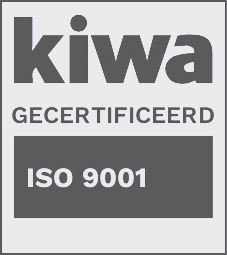Wikipedia defines a hybrid meeting as follows: ‘a tradeshow, conference, unconference, seminar, workshop or other meeting that combines a "live" in-person event with a "virtual" online component. It goes on to say that ‘hybrid meetings have become a popular way of increasing participation in traditional events’ and that they ‘also enable participation by people who might be unable to attend physically due to travel or time zone constraints or through a wish to reduce the carbon footprint of the event’.
This first part of the definition has become general knowledge, but most people forget that ‘hybrid’ also refers to the nature of these events: ‘the open, participatory nature of unconferences and their focus on sharing content, makes them hybrid events too’.
This is where sustainability comes into play. In our view, a hybrid meeting, or actually any type of event, should be more than just a welcome one-off. It should be part of a deliberate strategy in which the benefits are reaped before, during and after it is held.
Hybrid meetings as an alternative to in-person meetings
Many conference organisers mistakingly think that the cost-effectiveness of meetings and events is the main reason to go hybrid. They equate online and hybrid with cheap and low-effort. However, even if cost is part of the equation, the second part of Wikipedia’s definition already hints at another element that is at least as -if not more- important: the open, participatory nature of these events.
Indeed, the hybrid alternative is not suited for just any type of meeting. It is important to first determine the nature (participatory or not), objective (e.g. share information, networking) and the target group (e.g. age, tech savviness) of the meeting. Once that is done, you can determine what type of meeting is best suited and will give the highest return on your investment. It may well be that in some instances hybrid meetings are not necessarily cheaper. However, the bigger return in terms of achieving the pre-set objectives may make the higher investment worth your while.
Event design has now evolved to the next level. The level where organisers go beyond pure cost calculations and start looking at what truly adds sustainable value.
The business case for hybrid meetings
It may be somewhat daunting to try and build a business case for your (hybrid) meetings or events if you have never actually done this before. That is where our experience with (multilingual) meetings and events - be they ‘live’, online or hybrid - comes in. Together with our customers, we look at the communications objectives, current meeting type and schedule. We then select the meeting alternatives that we think match the strategy and analyse whether the current meeting type and schedule are in fact the most suited to achieve the communication objectives. Once all the options have been carefully considered, we present the solutions that we think will yield the highest returns.
How does a hybrid meeting work?
- Some of your participants can for example gather together in a conference room while other participants will follow the meeting remotely.
- Our technician is on site to set up and test the hardware equipment (cameras, microphones, headsets) and the necessary systems. During the hybrid meeting, he sends the sound and video feeds to the interpreters in real time. This guarantees that all the participants receive the interpretation live and in real time.
- Simultaneous interpretation may be required during your hybrid meeting, but the interpreters can work remotely. They receive sound in real-time via our technical solution and hardware equipment and will be able to provide the participants with interpretation.
- The Presence coordinator will be your SPOC (single point of contact). Due to the fact that this coordinator is in direct contact with you, the technician, and the interpreters, he/she is always aware of the status of every project and can, if needed, make instant changes in the requests.
- An online moderator facilitates the communication between online participants. He or she will make sure that your hybrid meeting runs smoothly.
- Thanks to the hybrid set up, the note taker can also work from home since he/she can follow the meeting via our streaming solutions.



.png)
.svg)
.png)
.svg)

%20(2).jpg)
.jpg)
.jpg)









.png)


.png)
